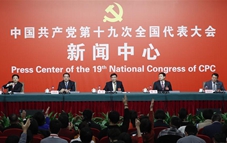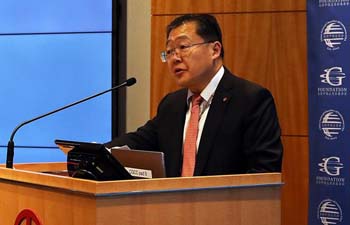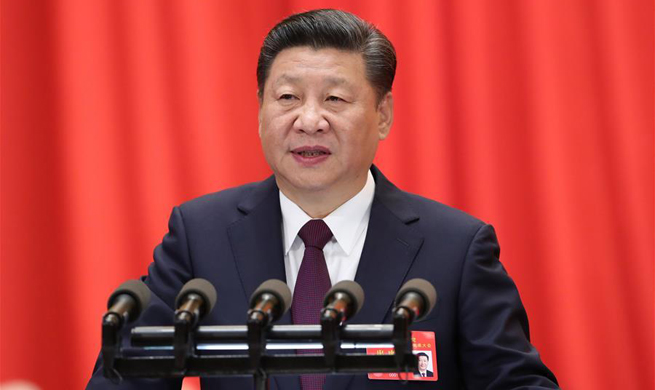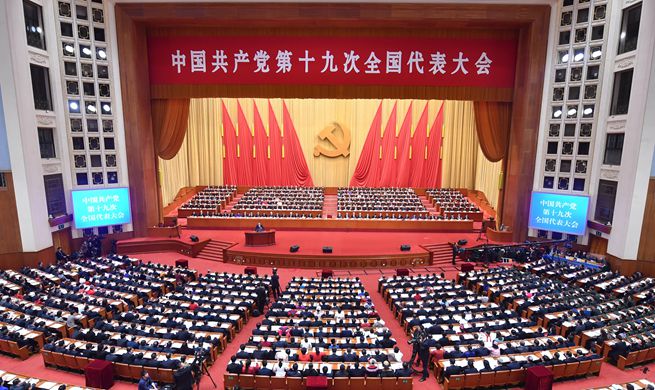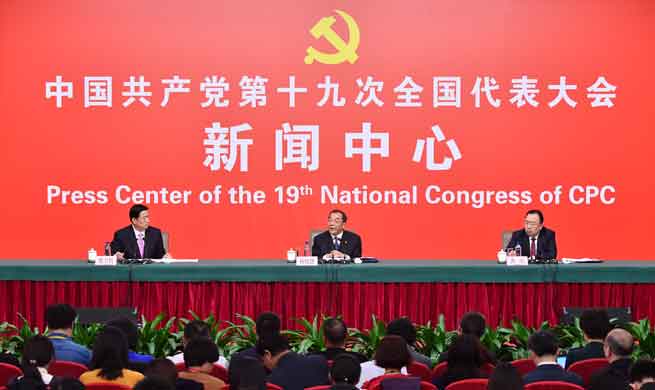by Eric J. Lyman
ROME, Oct. 19 (Xinhua) -- After more than a month of debate, the Italian government this week decided to use its "golden power" over the future of Telecom Italia, a move that makes it more likely the company will have to spin off its fixed-line business.
Telecom Italia, the former Italian state telephone monopoly, has been in a regulatory spotlight for months amid concerns that a 24-percent stake in the company held by French media giant Vivendi could give it too much control over the Rome-based company.
The automatic threshold that would mean a company has control is 25 percent -- barely larger than Vivendi's stake -- but Italian government officials have argued the Vivendi exercises de-facto control over the company given that it appointed two-thirds of the company's board, plus its chief executive and chairman.
Because Telecom Italia is considered a "strategic" interest in Italy, the government has a "golden power" that allows it to have a say in major corporate decisions. The decision over whether to use the "golden power" started in early September and went through several deadlines before it was formally exercised this week. It was the first time the "golden power" has ever been used in Italy.
"The 'golden power' has always been more of a threat than something the government would actually use," Cesare San Mauro, a regulatory law expert with Rome's La Sapienza University, told Xinhua. "Once it's used, I think it makes it more likely it'll be used again in the future."
In practical terms, it means the Italian government will have to be consulted for major strategic decisions related to Telecom Italia, and that makes it more likely the company will have to split its operations by splitting off the fixed-line network side of the company.
There will be no economic sanctions against Vivendi as part of the move, and for its part, Vivendi has already indicated it will not appeal the ruling.
"I think Vivendi realizes that in the long term, it cannot win fighting against the Italian government," Antonio Majocchi, a professor of international business at the University of Pavia, said in an interview.
According to Innocenzo Genna, co-founder of Digit@lians, a think tank, and a frequent commentator on telecommunications issues, even if it is split Telecom Italia remains an important company.
"Italy is the largest telecommunications market in Europe where neither (leading French operator) Orange or (Germany's) Deutsche Telecom, the two main European telecommunications companies, has a presence," Genna told Xinhua. "It's hard to imagine they won't be interested in Italy at some point, and Telecom Italia in whatever form is still the dominant player overall."
Whatever happens, the latest move does not seem to have had an over-sized impact on Telecom Italia or Vivendi: in stock trading Thursday, the first full trading day since the news was announced, neither stock price moved much, nor was trading interest in the shares particularly high.
"Whatever impact this latest news has, it is either seen as not really hurting the companies' bottom line, or the move had been debated so long it was already factored into the stock prices," Majocchi said.








